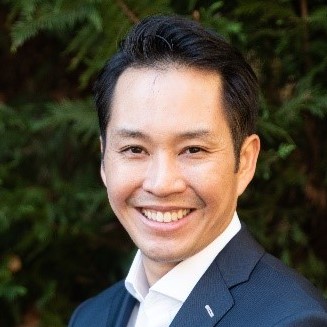Jayhawks in leadership positions are everywhere you look, including through the Jayhawk Career Network. KU Alumni, in partnership with SumnerOne, is highlighting Jayhawk leaders who are models for others in their industries with our “Copy the Leader” program.
What do you do in your work?
I serve as the general counsel for our USAID/Ethiopia and Djibouti Missions based out of the U.S. Embassy in Addis Ababa, Ethiopia. I provide legal and policy guidance for our internal operations and programming, which focuses on investments in development and humanitarian assistance. This includes, among other things, working with the local private sector to provide market-based development solutions that can be more sustainable over time. This also includes improving food security and providing lifesaving medicines due to crises arising from armed conflict and climate-related problems like droughts. Our work also helps to provide regional stability to the Horn of Africa, which is strategically important for counterterrorism and securing vital sea lanes for trading.
What are the qualities of a good leader?
There are many qualities you can list of a good leader, such as empathy, humility, transparency, integrity, and so forth. But whatever the quality is, the key is execution — how well someone genuinely and consistently applies those qualities in big and small ways each day.
How do you practice leadership at your job?
I’m big on emphasizing the difference between influence versus power when it comes to decision-making within an organization. Influence is when people want to do something for you because of who you are; power is when people have to do something for you because of your authority or position. Building influence is more effective and sustainable in the long run. Thus, I try not to wait to be a leader until I reach a certain level or “finally get promoted to (that certain job title).” Regardless of my position in an org chart, I try to build and maintain trust with my colleagues to increase how I can be a positive influence in all aspects of how we operate as a team. This is done through the daily practice of treating people with respect, which means being fully present in my interactions with them, listening before speaking, and having something meaningful to say when I do. Building positive influence is especially important for getting things done well in consensus-driven institutions.

What makes a team or group successful?
I think it boils down to at least two key components. The first is the degree to which people on your team feel like they can genuinely provide input (both good ideas and constructive criticism) and be heard. The second is, after all inputs are received, how well decisions are made. This means the process is clear and consistent to everyone on the team. It must also be decisive to avoid decision-making by committee that can result in a watered-down course of action.
How can leaders in your industry help their organizations adapt to change?
This is an interesting question because USAID is currently facing the most significant changes in its 64-year history by being dismantled as we speak. So the most important thing leaders in the foreign assistance space can do—whether they are fellow country donors, large foundations, NGOs, or implementing partners—is to stay the course despite all the toxic political discourse and misleading rhetoric out there. If anything, we need to double down on making the case for why foreign assistance matters and how it has not only improved the lives of millions of people around the world in real and measurable (i.e., evidence-backed) ways, but it has enhanced our own country’s safety, security, and economic interests. Any serious-minded person will understand how U.S. foreign assistance spending, which accounts for less than 1 percent of the overall government budget, has been one of the most effective investments our government has made over the past several decades. So, with or without USAID in the future, any effective foreign affairs strategy will continue to require robust and strategic foreign assistance programming as a co-equal pillar of development, diplomacy, and defense.
Want to receive alumni and career stories like this in your inbox? Subscribe to the Water Cooler, a monthly career newsletter for alumni, students and friends. It includes upcoming events, featured mentors, stories about alumni and students, jobs and more.




